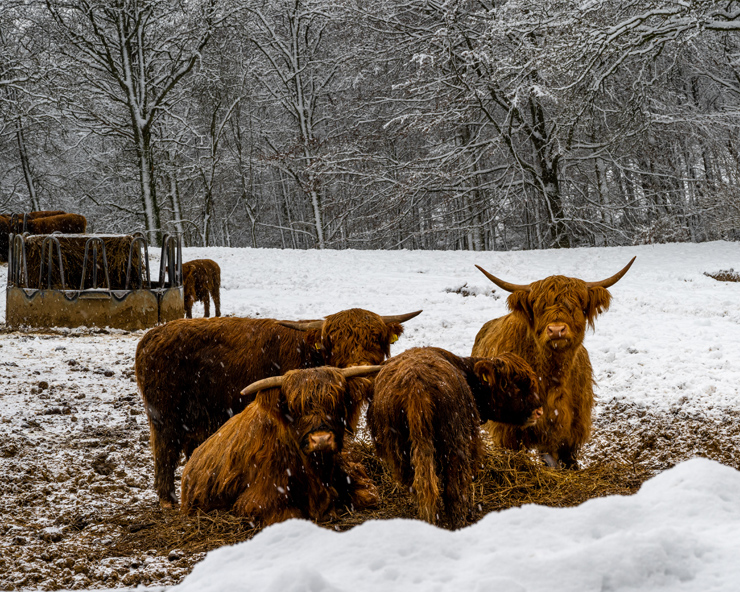As we head into winter, there are many considerations for livestock owners to make. Making preparations for winter can save you time, money, and stress. Depending on where you live, winter can be harsh on you and your livestock. Taking small steps to prepare can prevent unnecessary stress and difficulties. Check out a few tips below to keep you and your livestock safe this winter.
Farm Machinery
- Always have extra fuel on hand for farm vehicles, machinery, and generators. You never know when you may lose power or need to move snow.
- Keep machines in good running condition. Perform maintenance work as necessary. Making sure they run well before winter ensures they will be available during a potential emergency.
Feeding Livestock
- When preparing for winter, make sure you have enough hay/feed to get you through the winter. During the winter, hay costs increase as it is not as plentiful. Plan out how much you will need for the number of animals you have, which can also help you budget.
- When storing your feed and hay, make sure it is in a solid, enclosed environment. Wet hay and feed will turn moldy and possibly get your animals sick.
- Evaluate your hay feeding area. Is hay being wasted unnecessarily? While round bale feeders are a great way to feed larger animals such as cattle and horses, goats and sheep may take advantage of the area and use it for bedding. Look into different types of feeders that are the best fit for your livestock. If possible, also try to keep the hay feeders covered. Snow and rain can cause wasted hay and make it difficult to clean properly.
- Make sure adequate access to water is available. During cold times of the year, livestock may drink less water, but keeping water free of ice is still very important.
- When using a tank heater or de-icer, avoid using extension cords. It is important to check often to make sure it is working properly. These tank heaters can sometimes cause fires, cause animals to get shocked when drinking, and even cause fatal electrocution.
- Before winter, it is okay to feed a little extra. Animals with higher body conditions can handle winter weather better than thinner animals.
Housing
- Every animal is different and will require different needs when it gets cold. No matter what, it is important to provide windbreaks if animals are pastured. This can be a shed, trees, or large brush.
- During harsh winter storms or very cold weather, provide shelter for your animals to escape the cold. Providing this is very important to their health, especially for young animals.
- If your animals are housed inside, ensure good ventilation to prevent illness. Fresh air is good for animals, just like people.
- If you have smaller or young animals, you may need heat lamps. Make sure not to use extension cords and check them regularly to prevent fires.
- When bedding animals in winter, make sure to change bedding regularly. If not changed, there can be a buildup of ammonia in enclosed spaces, opening your livestock up to an increased risk of respiratory diseases.
- During extreme cold, animals may also risk frostbite and freezing. Young animals may lose ears and tails, and males are at risk of reproductive damage. When experiencing these temperatures, provide shelter and windbreaks.
If you’re heading into a harsh winter, consider implementing some of these tips into your herd. By preparing for the winter early, you will be able to better protect your livestock and their health. It may also save you some stress on those bitter winter days. If you are looking for additional tips, check out the resources below.
Resources
New Jersey Dept. of Agriculture: Tips to Protect Livestock During Extreme Winter Weather
MSU Extension: Winter animal care
Purina: Winter Cattle? Tips to Keep Them Warm

